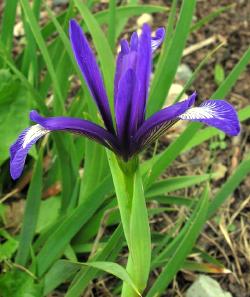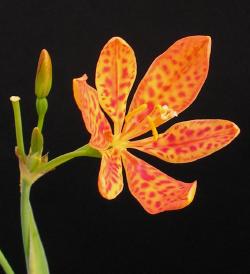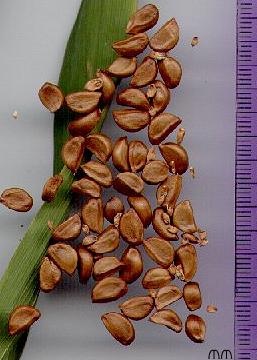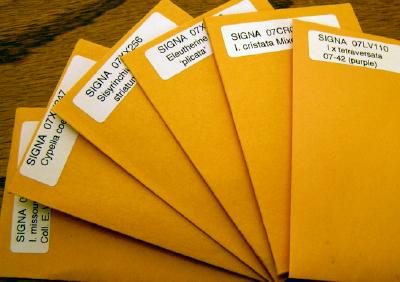 Species Iris Group of North America
Species Iris Group of North America
Publications* ⚜ Species Database ⚜ Spec-X ⚜ IOTM | ||
|
The SIGNA Seed Exchange is a major benefit of membership. It is also the main fund raiser for SIGNA. The proceeds go toward the publication of our SIGNA Journal and help to sponsor collecting trips, special publications, and research grants. Annual Seed Exchange Greetings from the Seed Exchange Chair. The Seed Exchange is the heart of SIGNA. It is our major fundraiser and supports the publication of our newsletter and other projects. Please remember to hand-pollinate or collect wild seed for next year’s exchange. Special thanks to Dennis Kramb for managing the online ordering system, and to all our donors who make the Seed Exchange possible. Online ordering is fastest and easily allows you to pay through PayPal. We prefer this method, however you can also print out a paper copy and mail it in with your payment to the address below. Seeds from the current list are only available to members of SIGNA. Seed from previous years may be purchased by both members and non-members. Please place your orders by April 1st. After that time, orders should be placed from Surplus Seed. 2019 - 2021 surplus seed can currently be ordered along with new seed at no additional shipping cost. Orders are filled in the order received. Only one packet of each entry in the list may be ordered at once, but you may place multiple orders. As has been occasionally done in previous years, donors’ orders will be filled first as an incentive to donate. Please don’t place multiple orders to get around the limit of one packet per order. Please mark substitutes in case your first choices are sold out. If placing a late order, you will need to choose a greater number of substitutes.  MEMBERS ONLY: Non-members may order by joining SIGNA – please include payment for at least a one year membership. If you are already a member and wish to pay your dues, you may do so along with your seed order with one check, or by PayPal with your online order.
MEMBERS ONLY: Non-members may order by joining SIGNA – please include payment for at least a one year membership. If you are already a member and wish to pay your dues, you may do so along with your seed order with one check, or by PayPal with your online order.PRICE: $1 per packet of seed, plus $5.00 per order for shipping and handling to U.S. addresses. Shipping to Canada is $16.00, and for all other countries is $19.00. As usual shipping costs have increased. INTERNATIONAL SHIPPING: Orders will be sent with correct customs info, but without a phytosanitary certificate. Very few orders last year were rejected by customs this way, even to Australia and the UK. PAYMENT: If not using the online system, members in the U.S. may enclose a check or money order made payable to “SIGNA”. Foreign members may use U.S. currency, an international money order or a draft on a U.S. bank. Anyone may also “send cash” to SIGNASeedEx.com via PayPal. REFUNDS: Refunds are not available. If we cannot fill your order and you have not marked enough substitutes, the remaining amount will be considered a donation to SIGNA. PLEASE mark substitutes! DONATIONS: You may donate to SIGNA via any payment method above. Round up your seed order to the nearest $5 or $10, or add any amount you wish to an order. Costs of supplies and shipping are always rising and your help is greatly appreciated! SEED LIST INFO: Each variety has a code that indicates year of the list, an alphabet code for the kind of iris and a three digit serial number such as 14TB021. All seeds in this year's list have the prefix "14". The list is divided into 6 sections. The alphabetic code is as follows:
ABBREVIATIONS: Abbreviations following the name: HP means Hand Pollinated, OP means Open Pollinated, WC means Wild Collected, and ex. indicates that the seeds were originally from another specific source (such as a person, a seed exchange, wild location, named cultivar, or a garden). Seeds of named cultivars ARE NOT identical to their parents and should never be given that name in the garden. They are new seedlings. Colors are abbreviated using English names.  AVAILABLE SEEDS: After each item in the seed list, you will find an abbreviation estimating the total number of seeds available.
AVAILABLE SEEDS: After each item in the seed list, you will find an abbreviation estimating the total number of seeds available.
REFERENCES: "The Iris" by Brian Mathew, "Iris of China" by James Waddick and Zhao Yu-tang, "The World of Iridaceae" by Clive Innes and the SIGNA Checklists are used to verify names. In a few instances, we have included names that we were unable to verify. You should also consult the SIGNA Species Database. There you can view information and photos of flowers, plants and seeds. Correct seed identification is not guaranteed, but based on information supplied by donors. The AIS Iris Encyclopedia is also a useful source of information on names: http://wiki.irises.org/bin/view HOW TO DONATE YOUR SEEDS THE SEED CHAIR: Send seed donations & payments to:
THE SEED CHAIR: Send seed donations & payments to:
5635 Thomas Road Ann Arbor, MI 48108-9758 U.S.A. SIGNASeedEx@gmail.com cell ph 734-417-7264 QUANTITY: 100 to 1000 seeds are ideal, but any number is welcome. Even if you only have one packet of seed to send, please do. They are greatly appreciated. Small paper envelopes are the preferred method for packaging seed. Please do not use film canisters, small boxes, etc. as they are difficult to organize. LABELING: Mark each envelope clearly and legibly with the correct name. If it is a named cultivar, please provide the species name or hybrid group to which it belongs. If it is from hand pollination, mark it HP; if it is wild collected, mark it WC and give the town, county, state, country and elevation if known; if it is from plants growing in your garden that were wild collected, write "ex." then give the above information; if it is grown from seed received from someone else or a seed exchange (SIGNA, BIS, NARGS), so indicate. Try to give a brief two to four word description, especially if there are any unique characteristics. Seeds with clear descriptions are always more popular. Be sure to include your name and address. PLEASE GIVE AN ESTIMATED SEED COUNT on every packet. HAND POLLINATED: PLEASE try to hand-pollinate the species in your garden specifically for the Seed Exchange, either by using two clones of the same species or by selfing. Hand pollination (HP) assures that a particular species will come true from seed. This is especially important for those species that readily cross with other species (e.g. bearded, aril, siberian, PCN, LA, spuria, etc.). This is the only way to preserve these true species! WILD COLLECTED: Many of us live near an area where irises grow wild. Wild collected seed (WC) is extremely popular and the best way to insure genetic diversity. If you know an area where irises grow wild, please make a trip to collect seed from as many plants as possible. Even if a widespread species, we have many members who would like to grow seeds of your native iris. DATES: All seeds should be post marked no later than November 1. For later ripening seed please send a list and brief description of each by the above date, so they may be included. These late ripening seeds must be received no later than December 31. Seeds received after this may be used as extras or held over till next year. FEED BACK: Donating seeds in fun, but takes some effort. Our donors would appreciate your feed back on how their donated seeds performed. If they were misnamed let them and us know. Mostly show your appreciation by dropping a note and telling them your experience and thanks, too. FOREIGN DONORS: For all donors outside of the United States, please send seed to the seed chairmen at the above address and email in advance for the current regulations regarding import of seed into the US. Foreign donors should send seeds no later than October 15 to allow time for proper handling and postal inspections. We will provide detailed info on import and documentation to insure safe and legal transfer of seeds. LEGAL RESTRICTIONS Iris pseudacorus and some Moraea and Watsonia species are prohibited in parts of North America.

| ||
|
© 2024, SIGNA.
For general inquiries about SIGNA please contact Rodney Barton.
Please report technical problems to dkramb@gmail.com.
|